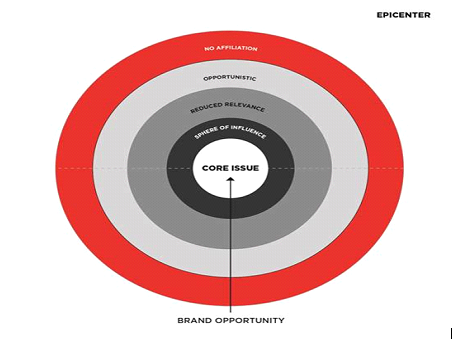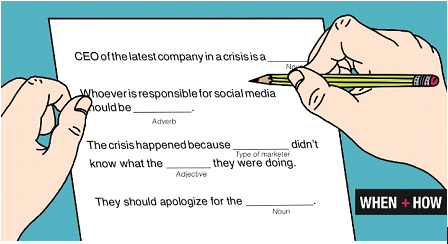In times of crisis, you must understand that you have to reacquire your clients and rebuild trust in your brand.
For example, I am a diehard Orange Theory Fitness (OTF) fanatic. Now, my membership is on hold because of the recommendation to close all gyms by the CDC. But, once the gym is reopened, I have to be convinced to once again invest my time, money and sweat in OTF.
For marketers, it’s the same train of thought. You need to invest more effort, more dollars and more time in rebuilding client trust, deepening client retention and ensuring consistent, positive customer experiences.
The first step to rebuild trust is to offer an empathetic apology for the inconvenience COVID-19 may have caused your customers. Find ways to work around the inconvenience through providing special offers, products or merchandise. In a crisis, if your company demonstrates good corporate citizenship, you will earn your customers’ loyalty and respect.
Here are some fundamental crisis management tenets to help you contain a crisis and even turn a loss into a win.
Never waste a good crisis
While many brands may get through the COVID-19 crisis with minimal impact – other brands will have major challenges to face.
For those of you with minor damage, dust off your old crisis manuals and update scenario planning to include exactly what to do in a crisis situation internally and externally. The crisis plan should include:
⦁ Crisis protocols
⦁ Frameworks for responses
⦁ Media relations best practices
⦁ Designated Crisis Response Team
⦁ Scenario Planning
⦁ Social media responses and templates
⦁ Crisis Decision Trees
In some companies, we’ve instituted a “45 minute rule” in a crisis. We give a select group of department heads time to review specific communications and if they don’t respond within a set time frame, the communication is sent. This creates a sense of urgency and helps get more done.
Perhaps more important than the Crisis Plan, is a dark website. We recommend every customer-facing brand should have a dark site. The dark site should be used as a guide to help your customers understand what proactive steps you are taking to address the issue at hand in real-time. During a crisis, the dark site should be updated hourly or daily basis.
For example, we helped the Infectious Disease Society of America plan for a crisis. We set up a streamlined process for short-term and a long-term crisis mitigation for the organization. This planning has positioned IDSA as a trusted source for the media and its stakeholders.
In addition, we help companies like DuPont and Lockheed Martin prepare and plan for crisis events through immersive online training. Scenario planning, messaging and process were the key focus in crisis management discussions. Executives who understand what may happen will be better prepared to respond in real-time.
Create a Crisis Response Team (CRT)
As an expert in crisis management, I can’t overstate the importance of a Crisis Response Team. Make sure you have the following people in place:
- A public relations professional with crisis communications expertise and experience working with attorneys on complex matters. Put this person on speed dial.
- An attorney with experience in PR: While an apology issued may protect the company from a lawsuit, it doesn’t protect it from being judged in the court of public opinion. Many lawyers are amazing at what they do, but if the PR team and the legal counsel, don’t agree – your brand may suffer from unnecessary delays in approvals. Go with a team with established legal relationships.
- A pre-selected group of trusted customers: Getting a few customers involved in advance will flatter them and make them more likely to come through for you in a crisis.
Turn off automated posts and ads
Even though the COVID-19 pandemic is beyond your control, it’s important to turn off your automated content and scheduled posts. You don’t want to seem tone deaf– or worse, unscrupulous in a crisis.
Some people are advising not to market in a crisis and I vehemently disagree, but there is a happy medium. In my book, SPIKE Your Brand ROI: How to Maximize Reputation and Get Results, we provide this graphic as a way to determine whether or not your response in appropriate or opportunistic. Understand your brands place in the crisis and how you can help your stakeholders most appropriately.

Remember that traditional media matters
Remember that reporters and producers actively listen to social media platforms to see what’s trending. If a social post on a big brand gets a lot of traction, traditional media will investigate and broadcast it to their readers.
Be transparent and proactive, so people don’t draw their own negative conclusions. Address the issue head on and offer a way for people to reach out to you directly with questions and concerns.
Forecast risk
While most of us were unprepared for something of this magnitude, the marketers who were well-positioned to seize appropriate opportunities in real-time will be remembered for their efforts, as their competitors silently scramble to keep business operations intact.
Even if you are scrambling – remember to say something – even if it is a generic holding statement like: “We are working on a plan and will provide an update by <Date> .”
Even amid a pandemic, a misperception can devolve into a major incident overnight. Silence makes room for rumor, innuendo, and bad press to fill the void, turning a small issue into a major brand blunder.

Don’t let your audience play Madlibs with your brand. Be sure to tell them your plans for dealing with COVID-19 and how they might be effected.
Keep employees in the loop and at every stage
Employees are often the last to know about a crisis. Reporters take advantage of this to garner information the executive staff and PR team won’t share. They’ll ask an employee about a crisis issue and whatever that person says suddenly becomes your company’s statement. It’s your job to keep your employees and other stakeholders informed.
Be prepared
The more you do necessary crisis scenario planning – and work out problems in advance – the better you, and your business, will weather the next crisis.
About Adele Cehrs
Adele Cehrs is the CEO of the When and How Agency, a crisis communications firm based in Alexandria, VA. She is heralded as a “crisis expert” by The Wall Street Journal and was named a business wonder woman by the Washington Business Journal. She authored Spike Your Brand ROI: How to Maximize Your Reputation and Get Results. For more information and crisis resources, go to www.whenandhowagency.com.
